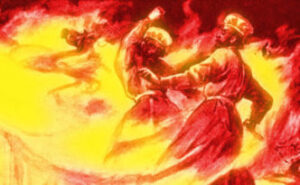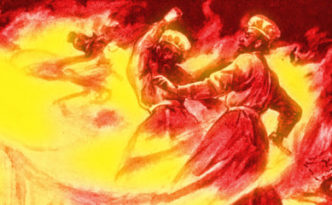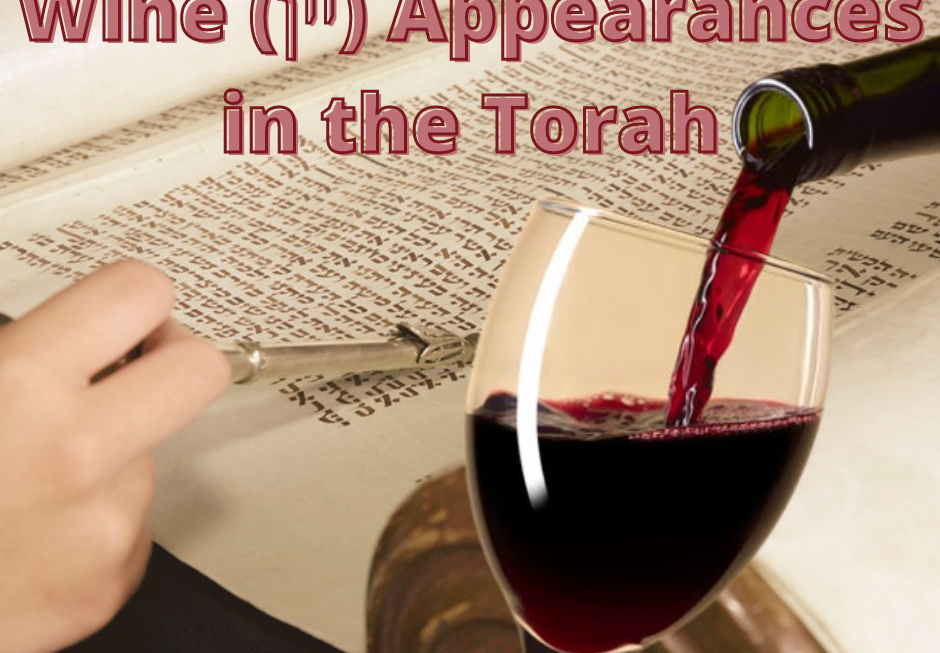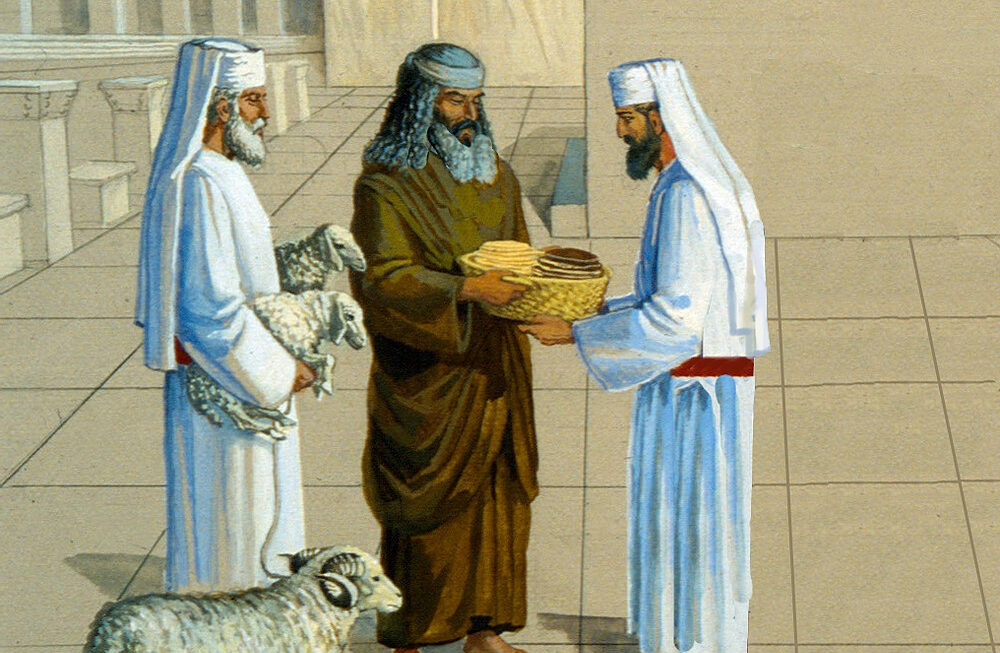When we encounter the reference to Nadav’s and Avihu in this week’s Torah portion, we see something that is quite consistent with the way that their deaths are described, which is due to them offering a strange fire: “וַיָּ֣מָת נָדָ֣ב וַאֲבִיה֣וּא לִפְנֵ֣י יְהוָ֡ה בְּֽהַקְרִבָם֩ אֵ֨שׁ זָרָ֜ה לִפְנֵ֤י יְהוָה֙ בְּמִדְבַּ֣ר סִינַ֔י וּבָנִ֖ים לֹא־הָי֣וּ לָהֶ֑ם And Nadav and Abihu died in front of the LORD, when they offered alien fire before the LORD in the wilderness of Sinai; and they had no sons” (Num. 3:4). We also see such a reference later on in the book: “וַיָּ֥מָת נָדָ֖ב וַאֲבִיה֑וּא בְּהַקְרִיבָ֥ם אֵשׁ־זָרָ֖ה לִפְנֵ֥י יְהוָֽה Nadav and Avihu died when they offered a strange fire before the LORD” (Num. 26:61). It does make one wonder why their deaths are consistently referenced with regards to offering a strange fire and never with regards to having been drunk while making this offering.
Yes, I am aware that there is a direct juxtaposition in the Leviticus 10 between the brief narrative about the strange fire they offered (Lev. 10:1-3, in particular, and Lev. 10:1-7 more broadly) and their deaths (particularly, “וַיִּקְח֣וּ בְנֵֽי־אַ֠הֲרֹן נָדָ֨ב וַאֲבִיה֜וּא אִ֣ישׁ מַחְתָּת֗וֹ וַיִּתְּנ֤וּ בָהֵן֙ אֵ֔שׁ וַיָּשִׂ֥ימוּ עָלֶ֖יהָ קְטֹ֑רֶת וַיַּקְרִ֜בוּ לִפְנֵ֤י יְהוָה֙ אֵ֣שׁ זָרָ֔ה אֲשֶׁ֧ר לֹ֦א צִוָּ֖ה אֹתָֽם And Aaron’s sons, Nadav and Avihu, each took his fire pan, put fire in it, and laid incense on it; and they offered before the LORD a strange fire, which He had not commanded them” (Lev. 10:1)) immediately followed by the injunction against priests coming to offer sacrifices while drunk or having had been drinking (Lev. 10:8-11). When reading this juxtaposition, the clear message that is likely to occur to any reader is exactly this connection between this strange fire and the proscription against intoxicated service. Moreover, it would be shocking if our sages had not connected the proscription against priestly intoxicated service and Nadav’s and Avihu’s death (cf. Leviticus Rabbah 12:1, as well as Rashi on Lev. 10:2 for examples of such a connection).
However, what I find fascinating is that nowhere in that injunction against priestly intoxicated service (Lev. 10:8-11) is there any mention of a connection to Nadav and Avihu, although there is a connection elsewhere in the book. This is found explicitly mentioned at the outset of chapter 16: “וַיְדַבֵּ֤ר יְהוָה֙ אֶל־מֹשֶׁ֔ה אַחֲרֵ֣י מ֔וֹת שְׁנֵ֖י בְּנֵ֣י אַהֲרֹ֑ן בְּקָרְבָתָ֥ם לִפְנֵי־יְהוָ֖ה וַיָּמֻֽתוּ The LORD spoke to Moses after the death of two of Aaron’s sons when they offered before the LORD” (Lev. 16:1). So here, we have an explicit reference to a Divine instruction following their deaths; is there any thematic connection to their deaths? As it turns out, the entire chapter is about appropriate behavior from Aaron when entering to offer sacrifices, including the beginning: “וַיֹּ֨אמֶר יְהוָ֜ה אֶל־מֹשֶׁ֗ה דַּבֵּר֮ אֶל־אַהֲרֹ֣ן אָחִיךָ֒ וְאַל־יָבֹ֤א בְכָל־עֵת֙ אֶל־הַקֹּ֔דֶשׁ מִבֵּ֖ית לַפָּרֹ֑כֶת אֶל־פְּנֵ֨י הַכַּפֹּ֜רֶת אֲשֶׁ֤ר עַל־הָאָרֹן֙ וְלֹ֣א יָמ֔וּת כִּ֚י בֶּֽעָנָ֔ן אֵרָאֶ֖ה עַל־הַכַּפֹּֽרֶת The LORD said to Moses: “Speak to Aaron, your brother, that he is not to come at will into the holy behind the curtain, in front of the cover that is upon the ark, lest he die; for I appear in the cloud over the cover'” (Lev. 16:2). After discussing appropriate timing, the chapter goes on to speak about sartorial requirements for Aaron, as well as which offerings he is to bring and how.
It would seem from reading Leviticus chapter 16, that this is a direct response to the unfortunate incident with Nadav and Avihu rather than the priestly proscription against intoxicated service. As such, it would seem that, taking this chapter in tandem with the incident, yields that Nadav and Avihu went at an inappropriate time and against God’s commandment, rather than due to their being intoxicated. As such, that would seem to be why they are never referred to as having offered while intoxicated, but rather having offered a strange fire (Lev. 10:1, Num. 3:4, and Num. 26:61), since it was not due to their intoxication. They simply did not bring an offering according to God’s command.


